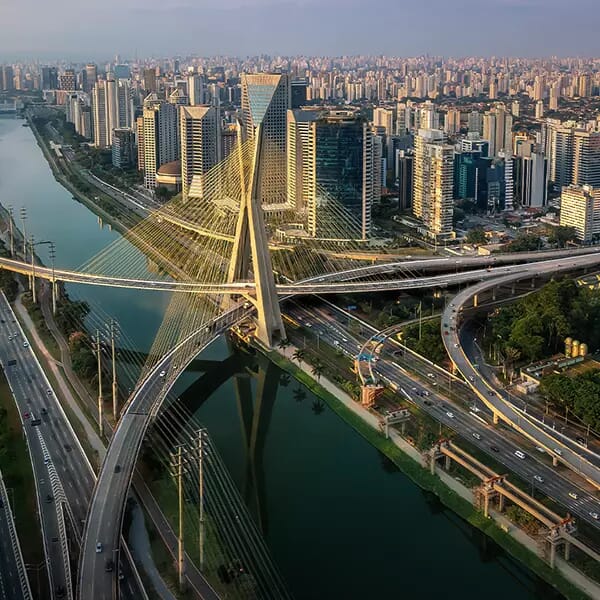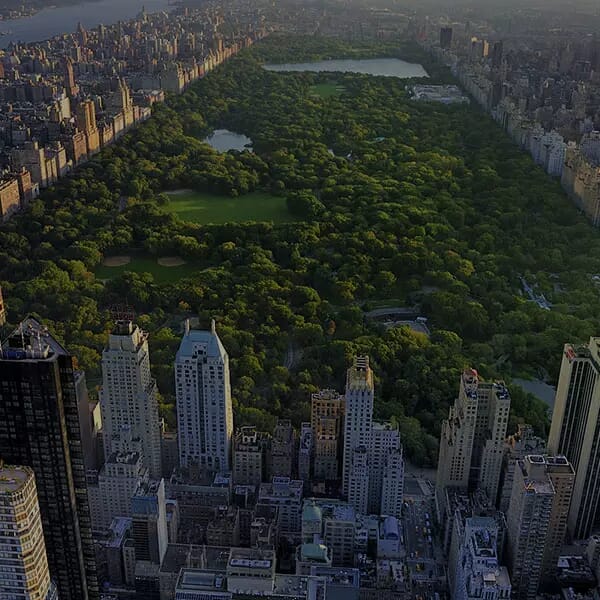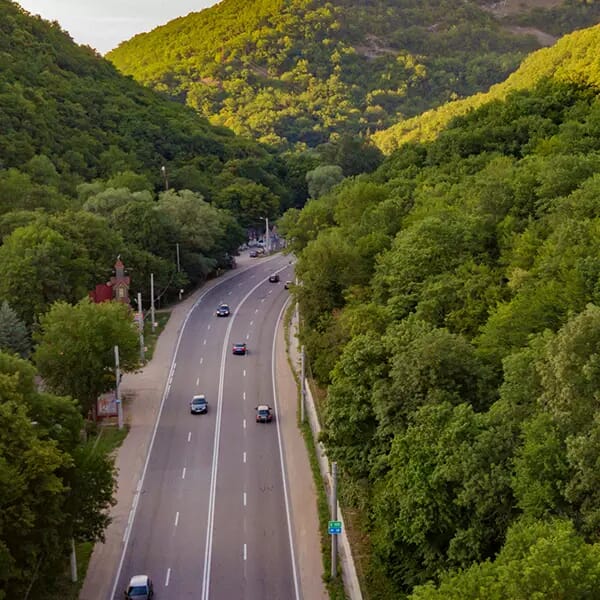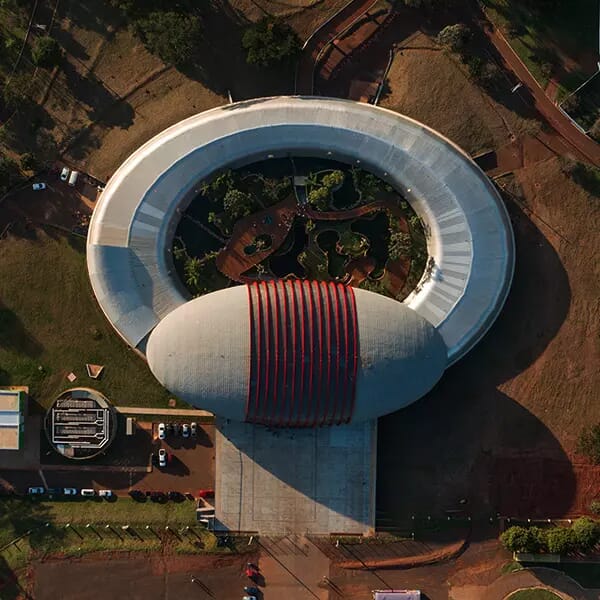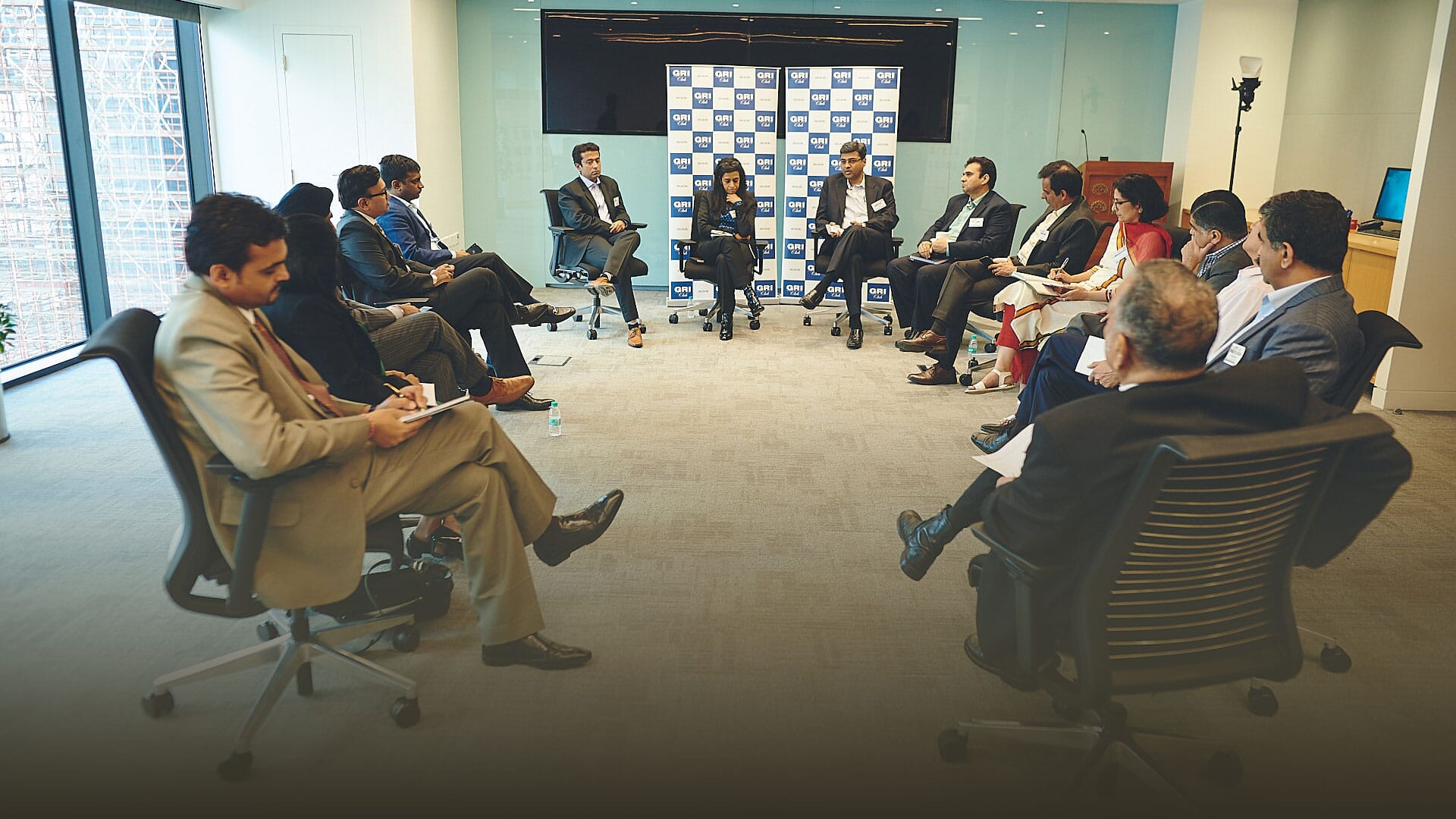
Are India’s PPPs set for progress, as ranking rises?
GRI Club India reconvened in Mumbai with a club meeting debating opportunities & challenges in Infrastructure sector
December 20, 2018Infrastructure
GRI Club India reconvened in Mumbai on 11th December 2018. The meeting, hosted at CPPIB’s office, was held to discuss opportunities and challenges in the Indian infrastructure sector, particularly in light of India's increased ranking in the World Bank’s Ease of Doing Business Index, from 100 to 77.
Policy framework & reforms
The consensus in the room was that there had been a significant improvement in the infrastructure sector, in terms of reforms being pushed through by the current government. However, for roads and related infrastructure projects, land acquisition issues remain contentious and as a result there has not been much improvement on the ground.
On the other hand, North Eastern states projects have been gaining momentum compared to projects in Madhya Pradesh and Maharashtra, where most of the projects are state-led and companies have to follow local laws, which can be rather tedious and time-consuming.
It was pointed out that the bidding process for projects followed good practice, but the capping system created a huge bottleneck. It was suggested that India should adapt established models from developed countries like Australia, which follows a concept focused mainly on capacity building.
Renewables
For renewable projects, it was felt that bank financing is becoming quite difficult to obtain and that there is a lack of decision-making by authorities. The government has partially implemented few reforms, but more are needed to address the general feeling of resentment. Also, due to regulatory interference, lenders are wary of Infrastructure investments. In fact, after the recent non-banking financial crisis (NBFC) crisis, the credit market was seen to be shrinking and there was limited access to capital, barring a few providers who were funding few projects.
Returns on investment for renewables were reported to have reduced by about half and it was felt that the process of bidding in auctions and pricing needed to be reviewed if renewables were to retain their status as the ‘sunshine sector’.
Trust and balance
It was generally felt that infrastructure-related arbitration time has gone down; however, it was noted that an arbitration clause has now become a standard part of government agreements.The PPP market remains the same in terms of deal-making, timelines etc, and it was felt that the PPP model has still not yet achieved a balance between government authorities and private operators. A major concern is the risk of unilateral changes by the government.
Trust, it was felt, remains a fundamental issue for PPPs. There is still a lack of trust and risks remain elevated for the infrastructure sector compared to other sectors.
Opportunities
Waterways as a means of transporting goods were felt to offer infrastructure development opportunities, particularly when comparing India’s with China’s arguably more developed waterway system. Modern technology was also considered a necessity for creating smart infrastructure in the country.
Tax issues
It was agreed that GST (goods and services tax)-related issues had more or less settled down and that the new tax is helping the economy move to a formal footing with a rise expected in tax revenues.
Rising inflows of foreign funds, it was felt, need to be maintained by addressing investor protection issues in the infrastructure sector.
Policy framework & reforms
The consensus in the room was that there had been a significant improvement in the infrastructure sector, in terms of reforms being pushed through by the current government. However, for roads and related infrastructure projects, land acquisition issues remain contentious and as a result there has not been much improvement on the ground.
On the other hand, North Eastern states projects have been gaining momentum compared to projects in Madhya Pradesh and Maharashtra, where most of the projects are state-led and companies have to follow local laws, which can be rather tedious and time-consuming.
It was pointed out that the bidding process for projects followed good practice, but the capping system created a huge bottleneck. It was suggested that India should adapt established models from developed countries like Australia, which follows a concept focused mainly on capacity building.
Renewables
For renewable projects, it was felt that bank financing is becoming quite difficult to obtain and that there is a lack of decision-making by authorities. The government has partially implemented few reforms, but more are needed to address the general feeling of resentment. Also, due to regulatory interference, lenders are wary of Infrastructure investments. In fact, after the recent non-banking financial crisis (NBFC) crisis, the credit market was seen to be shrinking and there was limited access to capital, barring a few providers who were funding few projects.
Returns on investment for renewables were reported to have reduced by about half and it was felt that the process of bidding in auctions and pricing needed to be reviewed if renewables were to retain their status as the ‘sunshine sector’.
Trust and balance
It was generally felt that infrastructure-related arbitration time has gone down; however, it was noted that an arbitration clause has now become a standard part of government agreements.The PPP market remains the same in terms of deal-making, timelines etc, and it was felt that the PPP model has still not yet achieved a balance between government authorities and private operators. A major concern is the risk of unilateral changes by the government.
Trust, it was felt, remains a fundamental issue for PPPs. There is still a lack of trust and risks remain elevated for the infrastructure sector compared to other sectors.
Opportunities
Waterways as a means of transporting goods were felt to offer infrastructure development opportunities, particularly when comparing India’s with China’s arguably more developed waterway system. Modern technology was also considered a necessity for creating smart infrastructure in the country.
Tax issues
It was agreed that GST (goods and services tax)-related issues had more or less settled down and that the new tax is helping the economy move to a formal footing with a rise expected in tax revenues.
Rising inflows of foreign funds, it was felt, need to be maintained by addressing investor protection issues in the infrastructure sector.
